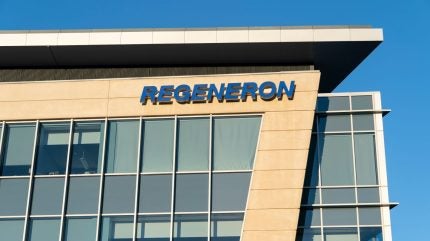
Regeneron Pharmaceuticals has reported encouraging results from the Phase I/II LINKER-MM1 clinical trial of its investigational bispecific antibody, linvoseltamab, in patients with relapsed/refractory multiple myeloma (r/r MM).
LINKER-MM1 is an open-label, multicentre, ongoing dose-escalation and dose-expansion trial that has enrolled 282 patients.

Discover B2B Marketing That Performs
Combine business intelligence and editorial excellence to reach engaged professionals across 36 leading media platforms.
The completed Phase I dose-escalation part of the trial evaluated the tolerability, safety and dose-limiting toxicities across nine linvoseltamab dose levels, apart from various administration regimens.
The Phase II dose expansion segment is underway to analyse the safety and anti-tumour activity of linvoseltamab, with the primary endpoint being the objective response rate (ORR).
Key secondary endpoints comprise duration of response (DOR), progression-free survival (PFS), the rate of minimum residual disease (MRD) negative status, and overall survival (OS).
Findings after an 11-month median follow-up showed that the treatment with linvoseltamab offered a 71% ORR, with 46% of patients achieving a complete response (CR) or better.

US Tariffs are shifting - will you react or anticipate?
Don’t let policy changes catch you off guard. Stay proactive with real-time data and expert analysis.
By GlobalDataThe median time to response was one month, with the median time to a very good partial response (VGPR) or better being three months, and to a CR or better being eight months.
The median DoR, PFS, and OS were not reached at the time of reporting.
After 12 months, the estimated probability of maintaining a response was 78%, being progression-free was 69%, and survival was 75%.
Among patients who achieved a CR or better and were MRD evaluable, 93% were MRD negative at 10⁻⁵.
The trial also included a response-adapted regimen allowing patients to shift to every four-week dosing upon achieving a VGPR or better after at least 24 weeks of therapy.
Of the patients eligible for this extended dosing regimen, 90% were able to transition, and 48% of those who transitioned before achieving a CR experienced a deepening of response to CR or better.
Cytokine release syndrome (CRS) was the most common treatment-emergent adverse event, occurring in 46% of patients.
The latest development comes after the US Food and Drug Administration issued complete response letters for the company’s biologics license application for odronextamab in r/r follicular lymphoma and r/r diffuse large B-cell lymphoma.





